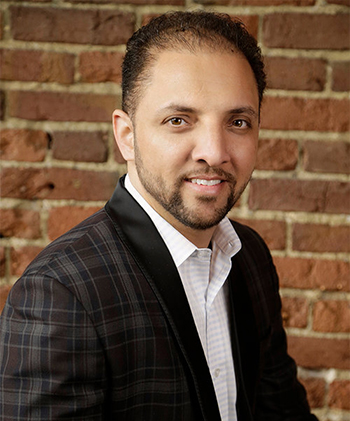If founders, chefs and other creatives are the beating heart of the restaurant industry, then franchisees are the veins delivering their ideas to all corners of the globe. Franchising is critical to the success of the industry, allowing brands to quickly scale their big ideas using other people’s capital. And whether it’s a mom-and-pop restaurant owner with one or two franchised restaurants or a seasoned veteran whose influence in the industry is well-known, franchisees — with all their individual attributes, styles and personalities — make a huge impact on the success of a business.
In this week’s installment of Franchisee Spotlight, we spoke with Sonu Chandi, a longtime Mountain Mike’s Pizza franchisee who just signed a deal to develop Chicken Guy in the San Francisco Bay Area. We spoke with Chandi about his journey from helping his father at his Indian restaurant, to becoming a franchise development agent overseeing other franchisees.
 Store count: Seven Mountain Mike’s restaurants in Northern California (though they have developed 17 in total) with 10 Chicken Guy restaurants coming soon
Store count: Seven Mountain Mike’s restaurants in Northern California (though they have developed 17 in total) with 10 Chicken Guy restaurants coming soon
Family immigration story
My father moved to the U.S. [from India] in 1996, and then [the rest of my family and I] moved here in 2000. He was working at a restaurant, so I usually helped out a few hours here and there. In 2003, he officially opened his first restaurant with a few partners, and I helped out and learned a lot of different things. Then, when I was going to college, an opportunity came up that a Mountain Mike’s Pizza was available for sale in Sonoma County. We didn't have a lot of capital, and it was strategic enough that it didn't need a lot of capital. So, we jumped in and started that in 2007. Since then, we’ve slowly grown as a franchising company.
Franchising over independent concept
Franchise systems have brands that they've developed, and they have done all the hard work of setting up a concept. Then, you come in as a franchisee and you can still be your own entrepreneur, but you don’t have to figure everything out from scratch. You have all the pieces in place. That’s why I think we went with the franchise. It helps you grow a little bit quicker than if you were completely independent.
Choosing brands
One of my friends owned a Mountain Mike’s, and he was successful in a couple of units. Back then, it was just required capital that was needed, and they didn't have other locations in our area, so we could grow. Those were the kinds of things that made us go for it, and it worked out. These days, we're very strategic when we're looking at a franchise. With Chicken Guy, we signed a large territory mainly because we know the brand. [It’s partially owned by Robert Earl, who is the CEO of] the international company, Planet Hollywood. We really looked at how to make sure it is going to do enough volume and what we bring to the table. We have built a strong infrastructure in our team. When we’re looking at a concept, we really try to find alignment, and that it fits in with our team’s skillsets.
Franchise development: keep or sell?
We look at many different dynamics: the quality of the team, how much leadership we have on-site, and having a GM in place who’s willing to do anything to make sure the team is successful. We’ve operated sites that are four or five hours away from us. When we have the right person leading it, and it's profitable every month, and there’s community involvement…We ultimately decide if it’s profitable enough, and worth the time we’re investing to operate.
Community involvement
We find every little way to get involved [with the community], whether it's in healthcare, public safety, etc., we give back. In the last few years, we've started a Public Safety Day, where we give pizzas to firefighters or police officers. We’ve done Teachers Day where we get pizzas to the teachers.
Profitability secrets
It always starts with the hard work and investment in your team. Our team is family. We invest a tremendous amount of time and energy building systems and trying to stay within those systems. We don’t just ask, ‘what’s happening to our sales? What's happening to our profitability?’ That's being a reactive manager. We’re looking at proactive measures, and saying, ‘we need to be investing time in our community, doing scheduling correctly, we need to make sure we give our team the resources they need to operate every day successfully.’
Becoming a development agent
We started as a franchisee and we thought we wanted to become a multi-unit franchisee, but then we became development agents where we oversee other franchisees. Now, we’ve started our independent concepts as well over the past few years that we want to grow one day, but we’ve put them on pause. Our biggest milestone is that we built an exemplary team prepared for exemplary growth. We have a back-office team in India ready to support our growth. That’s why we've seen a lot of success over the last couple of years.
What’s next?
We're looking [to acquire] a large multi-unit brand, where we can really bring the resources that we have to the table, alongside our innovative way of building and growing good teams in the right way. I think we are prepared for extreme, high-quality growth. We have pizza and now chicken, so we’re looking for something else. We have a team of more than 42 members in India, and we have a team based in Northern California, and we're excited to continue to stay there and invest in that team. I think we could grow anywhere, but we would prefer to grow in our backyard of Northern California.
**This article has been edited for clarity and brevity





